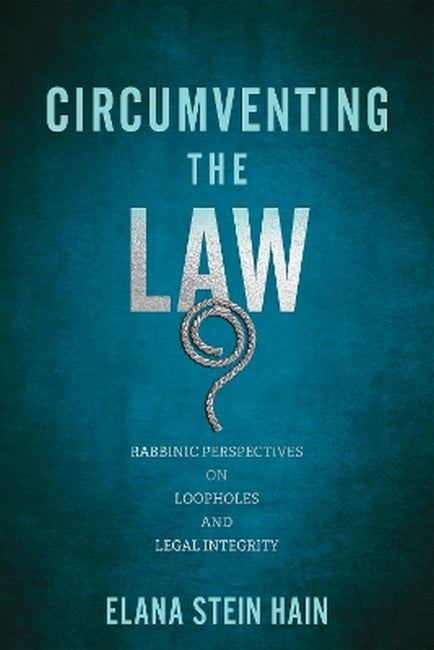Elana Stein Hain is the Rosh Beit Midrash and a Senior Fellow at the Shalom Hartman Institute of North America, where she leads research and curriculum development in the Kogod Research Center for Contemporary Jewish Thought and serves as lead faculty for the Institute's educational programming. This is her first book.
Request Academic Copy
Please copy the ISBN for submitting review copy form
Description
Introduction Chapter 1. (When) Do Circumventions Disrespect the Law? Chapter 2. Being Explicit About Legal Values and Integrity Chapter 3. Romans as Jurists, Rabbis as Lawyers Chapter 4. Ha'aramah and Intention Chapter 5. Ha'aramah in the Bavli: Discomfort with Ritualized Intention Chapter 6. Ha'aramah and Contemporary Legal Theory Epilogue. Ha'aramah and Takkanot Appendix. Comparing the Yerushalmi's and the Bavli's Use of Ha'aramah Terminology and Concept Notes Bibliography Index Acknowledgments
"Stein Hain demonstrates that Jewish law with respect to legal loopholes is neither static nor uniform over time. It is dynamic and dialectical, continually changing, and embroiled in internal debate with evolving challenges to legal integrity. Stein Hain's method of presentation models well the case-by-case approach of rabbinic law itself...[T]his is an important, original, and penetrating study that warrants wide dissemination and discussion in a broad range of Jewish and legal fields." (Contemporary Jewry) "More than a historical and comparative phenomenology of rabbinic legal 'loopholes,' this conceptually sophisticated and beautifully written volume offers a fascinating exploration of the role of values, intention, and subjectivity in classical rabbinic jurisprudence and exposes the paradoxical faithfulness behind the circumvention of divine law." (Christine Hayes, author of What's Divine About Divine Law: Early Perspectives) "Elana Stein Hain offers a provocative and persuasive reading of early rabbinic techniques for circumventing the law that immeasurably enriches our understanding of the early rabbinic worldview and invites readers to reconsider how our varying understandings of human nature shape legal rules from within." (Suzanne Last Stone, Yeshiva University)

